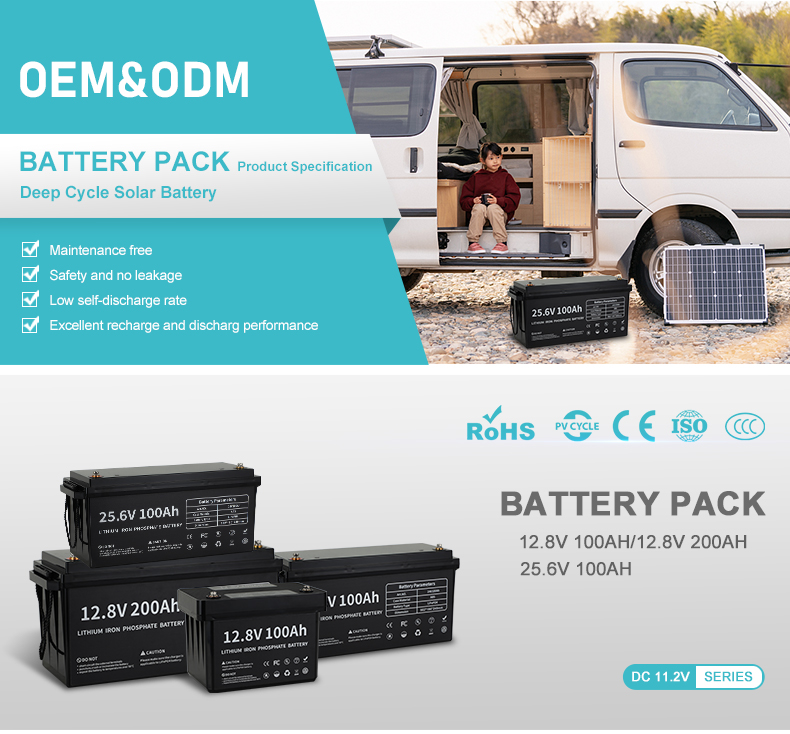Views: 4 Author: Site Editor Publish Time: 2024-08-17 Origin: Site








Solar batteries store your solar system’s excess energy, providing backup power at night or during emergencies. If your power company charges a higher rate during certain hours, you can use the stored solar energy to avoid those time-of-use fees.
Two types of solar batteries are currently available: lead-acid, lithium-ion. We’ve researched the pros and cons of each option to help you select the right one for your needs.
Types of Solar Batteries
Solar panel systems use two main types of solar batteries—lead-acid, lithium-ion. Each battery type has different benefits and works for different scenarios.
Lead-acid batteries have the longest history in the solar industry. These batteries are the most common because they’re reliable and affordable. Manufacturers classify them as deep-cycle batteries, meaning they can handle regular draining and recharging. However, repeatedly discharging more than 50% of their capacity will shorten their lifespan. They also contain environmentally harmful chemicals that must be disposed of carefully.
Lead-acid batteries come in two varieties, flooded and sealed. Flooded lead-acid batteries are water-based and require regular maintenance, such as adding distilled water. Sealed lead-acid batteries don’t require any maintenance. Both battery types work with solar power systems, but homeowners generally prefer sealed options for convenience and safety.
Lead-acid batteries have a low energy density, meaning they don’t hold much energy within their form. As a result, they are larger and heavier than other battery options. When not in use, they have a relatively high self-discharge rate of 3–5%, meaning they lose stored energy over time and require more frequent recharging. They also take longer to recharge and have shorter lifespans, often lasting between three and five years.
An off-grid system or backup power during power outages

Lithium-ion batteries use newer technology than other options and are becoming more popular for residential solar panel systems. This technology is employed in some of the most popular solar batteries.
Lithium-ion batteries have a higher discharge capacity than lead-acid options. They can discharge up to 80% of their total storage capacity without affecting their lifespan. Some models can discharge to 100% of their capacity without sustaining damage, allowing for better energy use and storage. Lithium-ion batteries also take less time to charge.
Lithium batteries come in two options: lithium nickel manganese cobalt oxide (NMC) and lithium iron phosphate (LFP). NMC batteries are more common and use older but reliable technology. These batteries offer midlevel power ratings and have a lower price point. LFP varieties use a chemistry that improves their stored energy retention, making them more efficient. They have a higher power rating but cost more than NMC options.
Lithium batteries have a high energy density, giving them a lighter and more compact build. They work well in tight spaces and are ideal for smaller homes. Lithium-ion batteries have a lifespan of up to 10 years and require little to no maintenance. Due to their more advanced technology, lithium-ion batteries are more expensive than lead-acid batteries.
High temperatures, overcharging, or improper installation can cause lithium-ion batteries to overheat, leading to a condition known as thermal runaway. This can result in them catching fire. Lithium-ion batteries generally require built-in safety circuits and Battery Management Systems (BMS) to prevent other damage like overcharging or deep-discharging. Ensuring proper installation can also minimize the risk of thermal runaway.
Large-scale installations—there is currently no residential version available at an affordable price
Solar batteries offer several benefits, from energy savings and a reduced carbon footprint to greater energy independence. We’ll review some highlights below.
Solar batteries let homeowners store excess solar energy generated during the day to power their homes during low-sunlight days or overnight. You’ll reduce your reliance on grid-tied power and gain greater energy independence.
Solarthon build systems that meet or exceed your home energy needs. Installing a solar battery allows you to use that extra energy in the future, extending your system’s efficiency.
Solar batteries improve your savings by putting your excess energy to good use. If your utility company offers time-of-use (TOU) rates, you can avoid periods of high electricity rates by tapping into your stored energy. When rates drop, your solar battery will activate and charge, saving you money on your electricity bills.
Solar batteries power your home during blackouts without additional backup generators. Homeowners can direct power to the whole household or only major appliances, helping conserve their backup power.
Solar batteries can boost your energy savings, improve your solar system’s efficiency, and reduce your dependency on grid-tied power. Lead-acid and lithium-ion batteries are the best solar batteries for homeowners. Lead-acid batteries work best in off-grid installations, while lithium-ion options are ideal for standard residential solar systems. Consider a battery’s DoD, round-trip efficiency, and power capacity when choosing the right one for your home.







